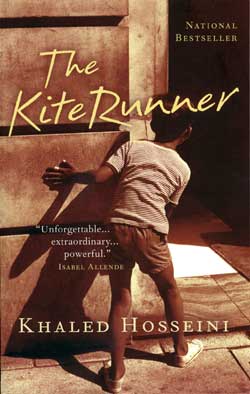 The Kite Runner by Khaled Hosseini
The Kite Runner by Khaled Hosseini This was a re-read for me. I think I reacted to this book more the second time around, which was odd. I had remembered the main events, but the details, such as Hosseini's perfect description and startling imagery, and the emotional response the book evoked, had been forgotten or blurred, so I rediscovered those things all over again. I also read the book this time around with a much more critical eye, reading it more as a piece of literary achievement than simply a book to settle in to.
There are several merits to this book, most notably is the writing style of the author. He captures things so well, in one scene I literally felt ill as he described Amir's car sickness. But it is the flaws and fractures of Amir, the protagonist, that I think really makes this book. On one hand, I loathed Amir for his cowardice, his treatment of Hassan, his babyish fights for his father's affections; but, on the other hand, this is what makes this book and this character so riveting. It is inside these flaws and fractures that make the book and the people in it so real, for I'm sure many readers can put themselves inside the guilty conscience of a frightened and confused young boy. The relationship between Amir and his father was also particularly well developed, with Amir learning his father fell victim to sin just as he had, and was not as god-like as he had once believed.
This novel reminded me of a novel I have read and blogged about: On Chesil Beach. One moment, one action or inaction, can change the course of a life forever.


